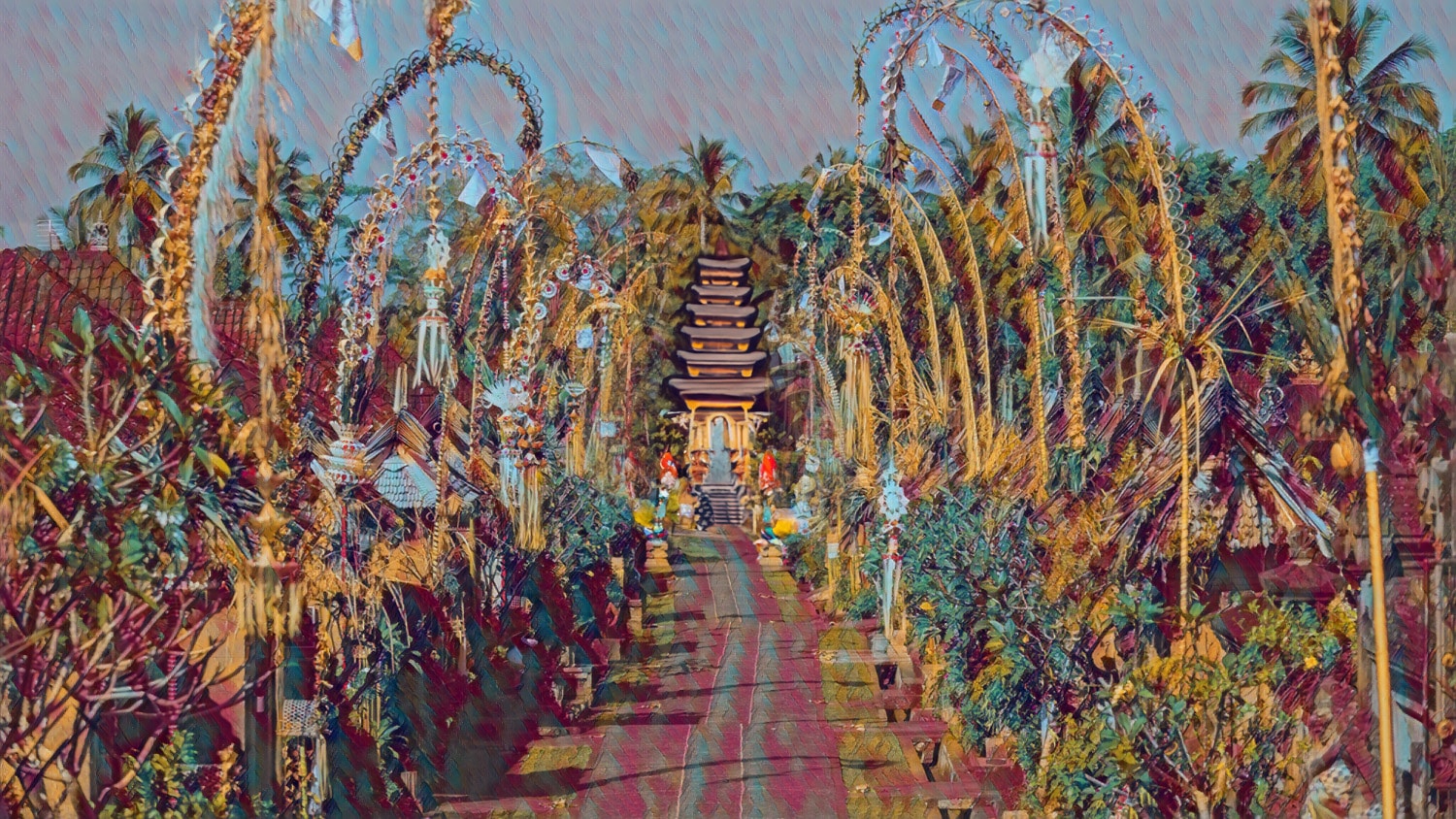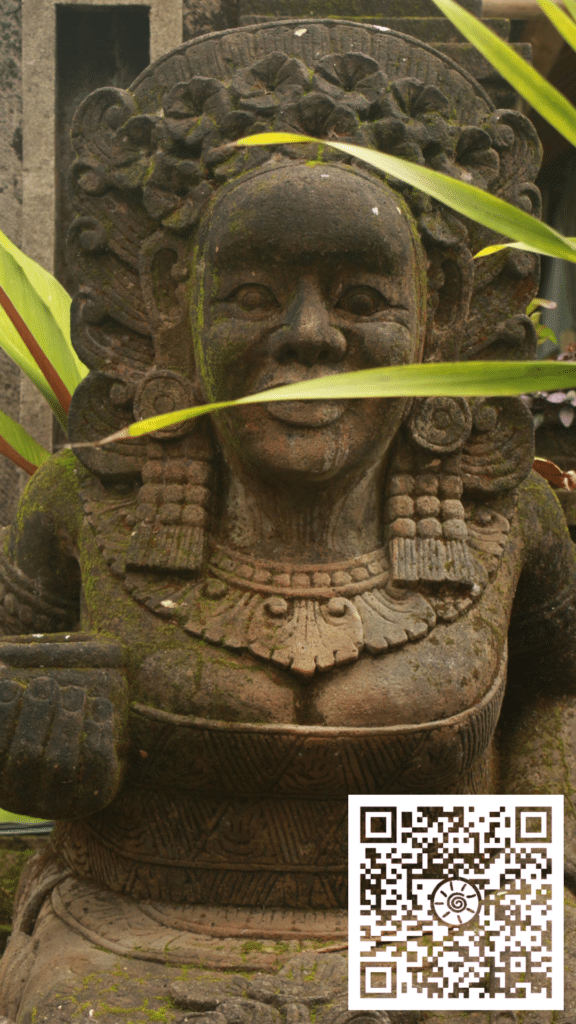Om Swastiastu!
Galungan is a vibrant and significant Balinese Hindu festival that celebrates the victory of dharma (good) over adharma (evil). Lasting for ten days, it marks the triumph of Lord Indra and the gods over the demonic forces led by King Mayadenawa. The festival occurs every 210 days according to the Balinese Pawukon calendar, falling on the Wednesday (Buda) of the Dunggulan week (Wuku Dunggulan).
Preparations for Galungan begin days in advance, with families diligently cleaning and decorating their homes, temples, and streets with intricate bamboo poles called penjor. These beautifully adorned penjors symbolize the sacred mountain of Mount Agung and represent gratitude to the gods for their blessings. Offerings known as banten are meticulously crafted and placed on shrines to honor ancestors and deities.
On Galungan day itself, Balinese Hindus dress in their finest traditional attire and gather at temples to perform prayers and rituals. The air is filled with the melodious sounds of gamelan music and the fragrance of incense as devotees present offerings of fruits, flowers, and symbolic items to express gratitude and seek blessings for prosperity and protection.
A notable aspect of Galungan is the tradition of visiting family and relatives. It’s a time for reunion and strengthening bonds, as loved ones come together to share meals and exchange blessings. Elders bestow blessings upon the younger generations, imparting wisdom and guidance for a prosperous future.
The climax of Galungan is Kuningan, which falls on the tenth day. On this day, special offerings are made, and prayers are offered to express gratitude for the spiritual journey during Galungan. Families visit temples once again to seek blessings for harmony and balance in life.
The significance of Galungan extends beyond its religious aspects; it embodies the cultural essence and communal spirit of the Balinese people. It serves as a reminder of the importance of upholding values of righteousness, unity, and respect for nature and ancestors.
As the festivities draw to a close, the spirits of ancestors are believed to return to the heavens. However, their presence and blessings continue to resonate within the hearts of the Balinese people, inspiring them to live harmoniously and cultivate virtue in their daily lives.
Galungan is not merely a festival but a profound expression of Balinese spirituality and cultural identity. It fosters a sense of belonging and interconnectedness, reinforcing the bonds between the Balinese people, their ancestors, and the divine forces that shape their existence.
Om Shanti Shanti Shanti Om.



